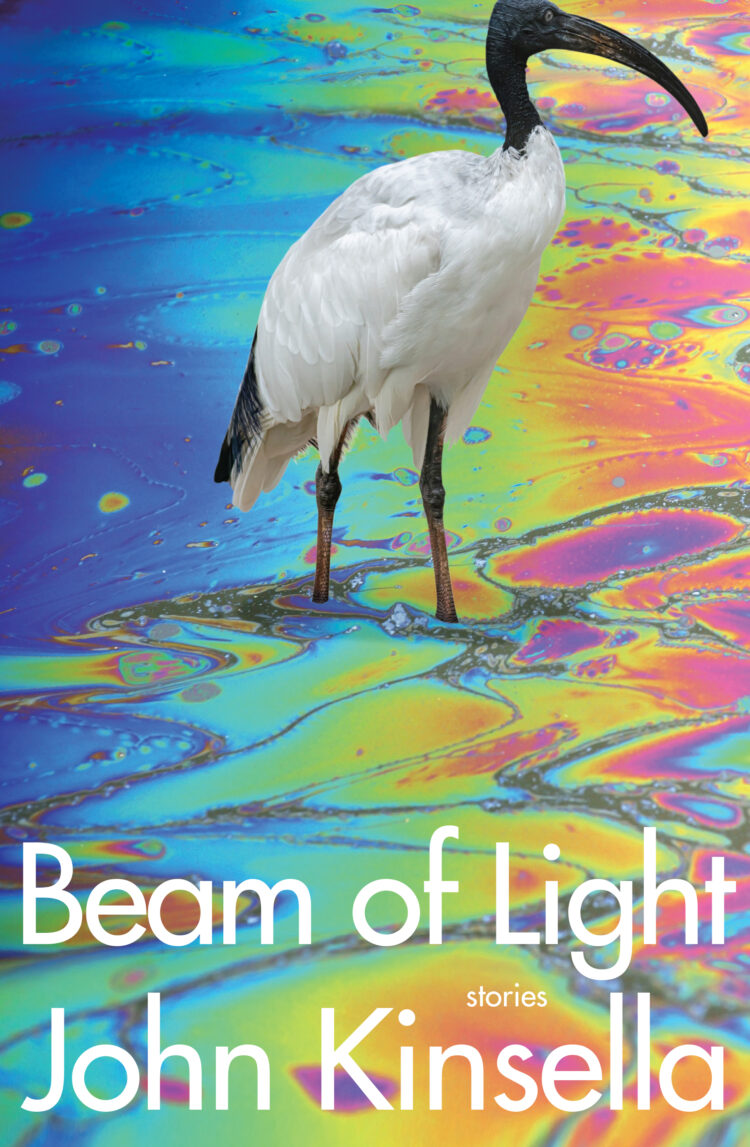Beam of light: Stories by John Kinsella

Beam of Light is a collection of 29 short stories, most of which powerfully evoke the people and landscape of the WA wheatbelt, where Kinsella grew up.
Best known for his poetry, here Kinsella masterfully displays his skills as a wordsmith. With a very small word-count he creates a thoroughly believable, evocative picture of the often-damaged inhabitants living hard-scrabble lives on the land and in rural townships. He instils his concerns as an animal activist, his preoccupation with the effects of colonialism on the land and its animals, and his experience of addiction, into the stories without being heavy-handed or moralistic.
His characters are invariably flawed, often battling addictions and obsessions, and negotiating difficult relationships, trying to reinvent themselves, and be their best. Drug-induced paranoia, and conspiracy theories drive the plot in several stories.
He clearly understands the issues facing people of all ages. Young characters try to make sense of the world; in Playing Chicken he explores young love and peer pressure. In Entertaining the Admiral adult morals and secrets confuse a young boy. Bullying surfaces in 7000 Wheelies.
Family dynamics are paramount in attempts to repair and build father/daughter, and husband/wife relationships. A jealous FIFO husband and a homesick wife circle each other in The Jacuzzi. Two father’s enmity affects their daughters in Ballet Class. In Abandoned a family man reacts to feeling overwhelming oppression.
Unreliable memories of a troubling time stir in Bonfire, and a moral quandary involving car theft drives Law of Necessity. The Invitation unravels a tense dinnertime conversation with religious fanatics.
Kinsella’s concern for the environment shows as people bond or disagree over the treatment of various animals in Burying the Rabbits, Fox Skeleton, and Ballet Class.
Several stories are set in Ireland, teasing out characters’ difficult relationship to locals and the land, building on a suspicion of ‘others’ and the need for ‘belonging’.
Kinsella masterfully controls the emotional landscape, in some stories injecting an underlying unease, in others an immediate threat of violence. Isolation in the bush is a recurring theme, and emotional abuse is often lurking.
This is an excellent read; easy as the stories are short, but difficult as we watch Kinsella’s characters struggle in cycles of imperfect behaviour, poor judgement and damaging obsessions.
Warnings; drug use, addiction, emotional abuse.
Themes: Australia, WA, Resilience, Rural, Short stories.
Margaret Crohn